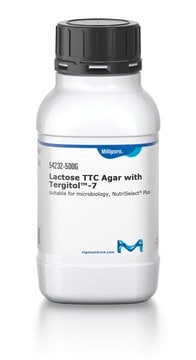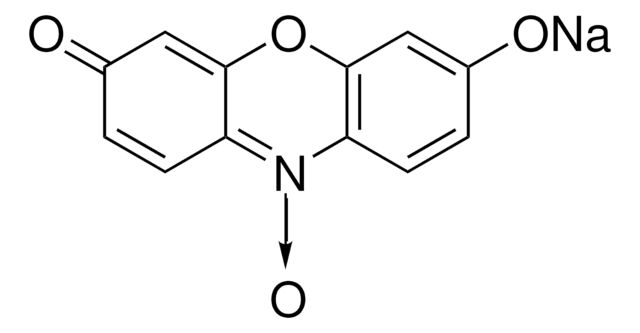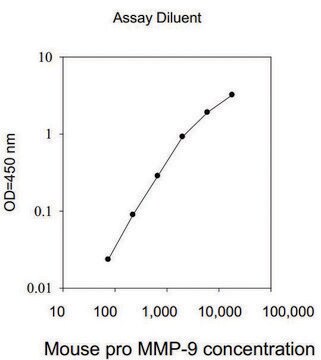17779
2,3,5-Triphenyl-tetrazolium chloride solution
suitable for microbiology, Filter sterilized solution that is recommended for the detection of microbial growth based on reduction of TTC
Synonym(s):
TTC solution, TTC supplement, TTC solution, TTC supplement
About This Item
Recommended Products
Quality Level
sterility
sterile (Filtered and Aseptic Handled)
form
liquid
shelf life
limited shelf life, expiry date on the label
mol wt
334.8 g/mol
application(s)
agriculture
environmental
food and beverages
microbiology
storage temp.
2-8°C
suitability
bacteria
SMILES string
[Cl-].c1ccc(cc1)-c2nn(-c3ccccc3)[n+](n2)-c4ccccc4
InChI
1S/C19H15N4.ClH/c1-4-10-16(11-5-1)19-20-22(17-12-6-2-7-13-17)23(21-19)18-14-8-3-9-15-18;/h1-15H;1H/q+1;/p-1
InChI key
PKDBCJSWQUOKDO-UHFFFAOYSA-M
General description
Application
Components
2,3,5-Triphenyl tetrazolium chloride: 0.1 g, distilled water: 10 ml
Storage Class Code
10 - Combustible liquids
WGK
WGK 2
Flash Point(F)
Not applicable
Flash Point(C)
Not applicable
Personal Protective Equipment
Choose from one of the most recent versions:
Already Own This Product?
Find documentation for the products that you have recently purchased in the Document Library.
Customers Also Viewed
Articles
Vibrios are motile, curved or comma-shaped bacilli and have a single polar flagella with sheet proteins. They are often found in open water, freshwater and saltwater.
Our team of scientists has experience in all areas of research including Life Science, Material Science, Chemical Synthesis, Chromatography, Analytical and many others.
Contact Technical Service







